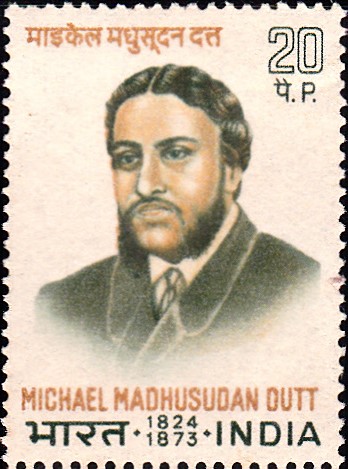
Michael Madhusudan Dutt
A commemorative postage stamp on the Death Centenary of Michael Madhusudan Dutta, an Indian Bengali poet and dramatist, a pioneer of Bengali drama [a part of the series ‘Centenary Stamps Series‘] :
 Issued by India
Issued by India
Issued on Jul 21, 1973
Issued for :
Centenary Series
A set of four stamps are being brought out to commemorate the centenary of the death of Michael Madhusudan Dutt, the well-known poet of Bengal, the centenary of the birth of Vishnu Digambar Paluskar, the eminent musician of India, the centenary of the discovery of leprosy bacillus, and the quin-centenary of the birth of Nicolaus Copernicus, the world renowned scientist.
The P&T Department feels honoured to bring out these stamps in the Centenary Series being issued on 21-7-73.
Description of Design : The stamp is vertical and depicts the portrait of the personality.
Type : Stamp, Mint Condition
Colour : Olive green & chestnut
Denomination : 20 Paise
Overall size : 3.91 x 2.90 cms.
Printing size : 3.56 x 2.54 cms.
Perforation : 13 x 13
Watermark : Printed on unwatermarked Adhesive Stamp paper in sheets
Quantity printed : 1 Million
Number per issue sheet : 35
Printing Process : Photogravure process
Designed and Printed at : India Security Press, Nasik Road
Name : Michael Madhusudan Dutta
Born on Jan 25, 1824 at Sagordari, Jessore District, British India [now in Bangladesh]
Died on Jun 29, 1873 at Kolkata, India
About :
- Madhusudan Dutt was born in Jessore (now in Bangla Desh). As a student of the Junior School of Hindu College, Calcutta, he gave evidence of extra-ordinary proficiency in English language. By the time he was nineteen, he embraced Christianity and became ‘Michael‘ Madhusudan. Up till 1847, his father met all is expenses, but soon afterwards Madhusudan was stranded and left for Madras where he started his career as an English teacher. Even though his first long poem was published in English, he decided to employ his poetic talent in the service of his own mother-tongue, on the advice of a well-wisher. By 1856 he went back to Calcutta and stayed there for six years till he sailed for England. The years which he spent in Calcutta constitute the most flourishing period in Madhusudan‘s literary career. Three dramas, two satirical sketches and four poetical works were published during the short span. His Kavyas created a revolution in Bengali poetry, some of them being noted for their bold diction and others for their tender lyrical note. He translated Dinabandhu Mitra‘s ‘Nildarpan‘ into English. During his stay in France, he composed sonnets and also a few poems.
- After a few years’ stay in London and Versailles, he returned to India and was admitted as an advocate of the Calcutta High Court. Being given to living beyond his means, he ran into huge debts easily, and his last days were beset with financial crises.
- Madhusudan imbibed within him deep respect for classical studies both Eastern and Western, spirit of revolt against orthodoxy, sympathy for progressive social changes like remarriage of widows, and love for his mother tongue. He was connected with the ‘Mechanic’s Institute‘, ‘Bidyotsahini Sabha‘, and ‘Belgachia Theatre‘. He was a child of the Bengali Renaissance in the truest sense of the term.


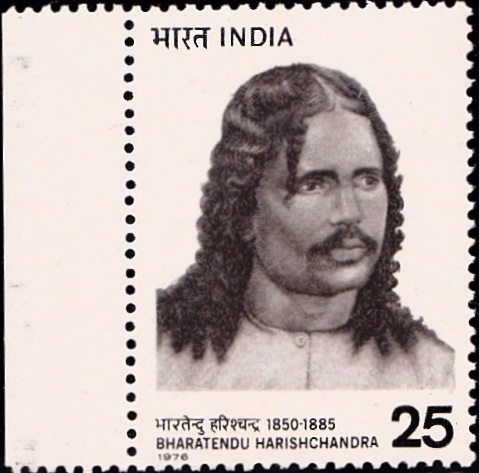
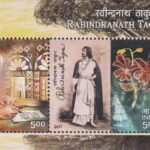
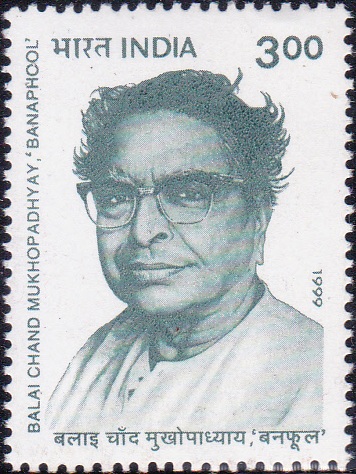
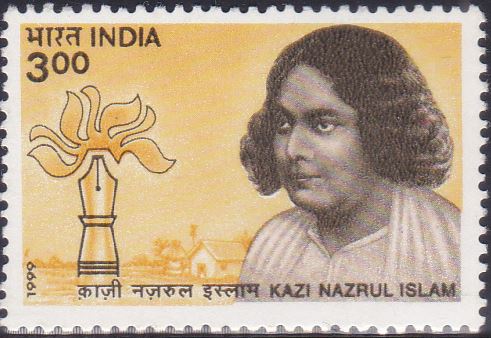
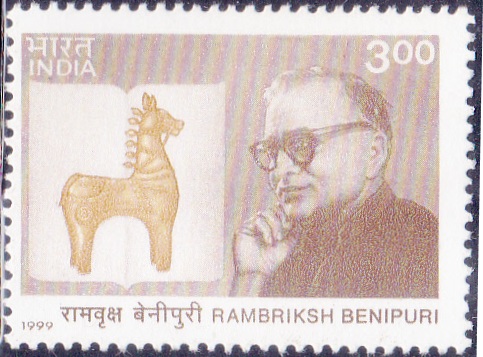
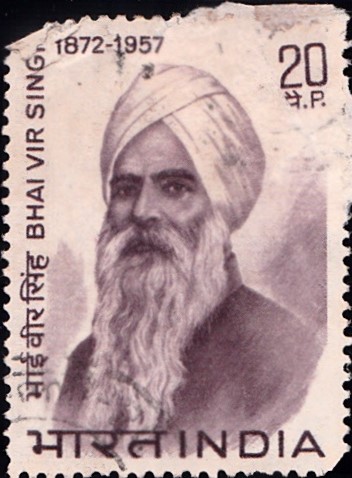
[…] Series A set of four stamps are being brought out to commemorate the centenary of the death of Michael Madhusudan Dutt, the well-known poet of Bengal, the centenary of the birth of Vishnu Digambar Paluskar, the eminent […]
[…] Gandhiji reached Patna on 10 April, 1917 and on 16 April he reached Motihari accompanied by Rajkumar Shukla. Under Gandhiji’s leadership the historic “Champaran Satyagraha” began. The contribution of Rajkumar Shukla is reflected in the writings of Dr. Rajendra Prasad, first President of India, Acharya Kriplani and of course Mahatma Gandhi himself. Rajkumar Shukla maintained a diary in which he was given an account of struggle against the atrocities of the indigo planters, atrocities so movingly depicted by Deen Bandhu Mitra in “Neel Darpan”, a play that was translated by Michael Madhusudan Dutt. […]
[…] Series A set of four stamps are being brought out to commemorate the centenary of the death of Michael Madhusudan Dutt, the well-known poet of Bengal, the centenary of the birth of Vishnu Digambar Paluskar, the eminent […]
[…] Series A set of four stamps are being brought out to commemorate the centenary of the death of Michael Madhusudan Dutt, the well-known poet of Bengal, the centenary of the birth of Vishnu Digambar Paluskar, the eminent […]